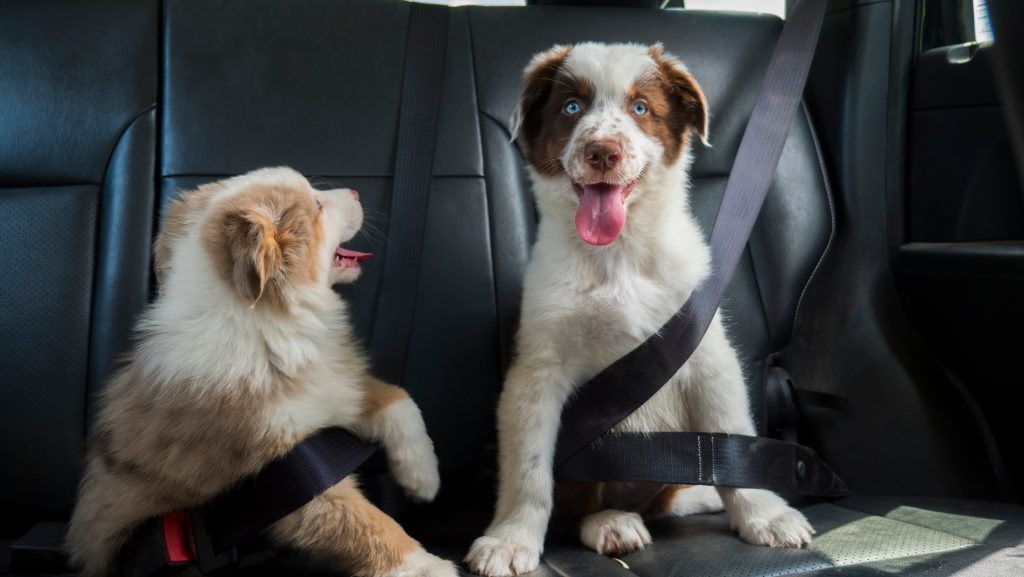
Here at Troomi, we know there are a lot of dangers for kids in our modern world of tech, but there are also some dangers you should be aware of in your very own driveway. Noheatstroke.org has been monitoring Pediatric Vehicular Heatstroke (children dying from heatstroke in cars) for years. Since 1998 there have been 897 children who have died in hot cars. Of those deaths, 52.9% were forgotten by their caregiver and 25.6% got into the car on their own. 19.7% of them were left there by their caregiver. Why is that dangerous? The temperature inside your car can increase 20 degrees in 10 minutes but it doesn’t just level out at 20 degrees hotter. The temperature keeps increasing.
What happens to a child left in a hot car, even for 10 minutes?
Within minutes, children will experience heat exhaustion or worse, heat stroke. Heat stroke can cause shock, seizures, irregular heartbeat, heart attack, and even permanent damage to the brain, liver, and kidneys. Worst of all, it can lead to death. Children and babies aren’t able to regulate their temperature as effectively as adults. Being trapped inside the car, they can’t do anything to cool off or escape. Hot cars are equally as lethal to your family’s fur babies. Even if you leave the window cracked, your car’s interior temperature can skyrocket above 100 degrees in just a few minutes. Make sure you take every precaution to keep your child and your pet safe when it comes to car travel. And check out this article for more tips on how to keep your pets safe in the car!
Forgotten Baby Syndrome
You might be wondering, “what kind of person could forget their child in a car?” According to David Diamond, PhD and professor of psychology, anyone can forget. He wrote, “One aspect of my research program is the study of how normal (i.e., attentive and loving) parents and caretakers, without evidence of abuse or neglect of children, and without evidence of drug abuse or organic brain dysfunction, unintentionally and unknowingly, leave children in cars.”
If anyone, including loving, attentive parents can forget their children in a car, what can you do to keep your children safe from a lapse in memory? Here are some tips to keep your kids, and your pets, from being left in a car.
There are several reasons children are left alone in a car. Let’s look at the most common and some solutions.
A caregiver forgets their child in a vehicle.
If you’re distracted or it’s not part of your normal routine to drive with a child in the car, you’re at risk of forgetting your child in the car. Any break in your routine can cause you to forget about your child in the back. Use Park, Look, Lock, checking over your entire vehicle before locking your door and walking away. Ask your daycare or child care provider to call you if your child doesn’t show up as expected (for either you or your spouse). Place your purse, back pack, or cell phone in the back seat next to the car seat. They also recommend putting a note or stuffed animal in the front seat to remind you to check the back.
A child gains access to the vehicle and is trapped inside.
What about children who climb into unlocked, unattended vehicles and become trapped inside? What can you do to help them? Make sure to keep your car and trunk locked. Keep your car keys out of reach of children and teach them a vehicle is not a safe place to play. If your child goes missing, check the pool first and your car (and its trunk) second.
Someone knowingly leaves their child in a vehicle.
Never leave your child (or pet) in a locked car, even for a few minutes. Your errand isn’t worth their life. What if you see a child (or pet) locked in a vehicle? Call 911 and listen to the operator on what to do. If the child or baby is showing signs of distress or are unresponsive, they should be removed from the car as soon as possible and then cooled.
Troomi wants to keep your kids safe, which is why they developed a childsafe smartphone. This phone is designed to teach kids responsibility while also shielding them from the dangers of the online world.
